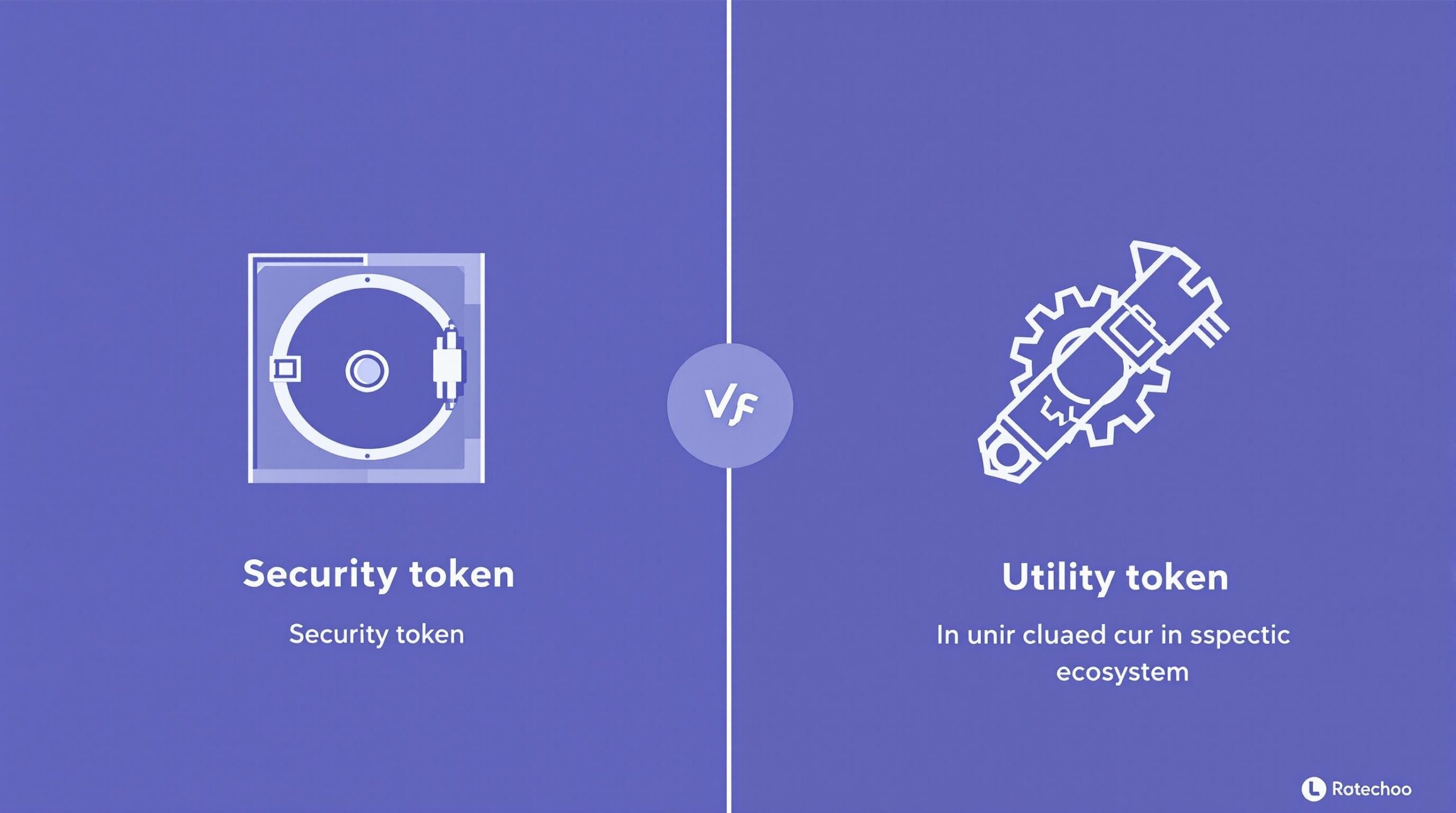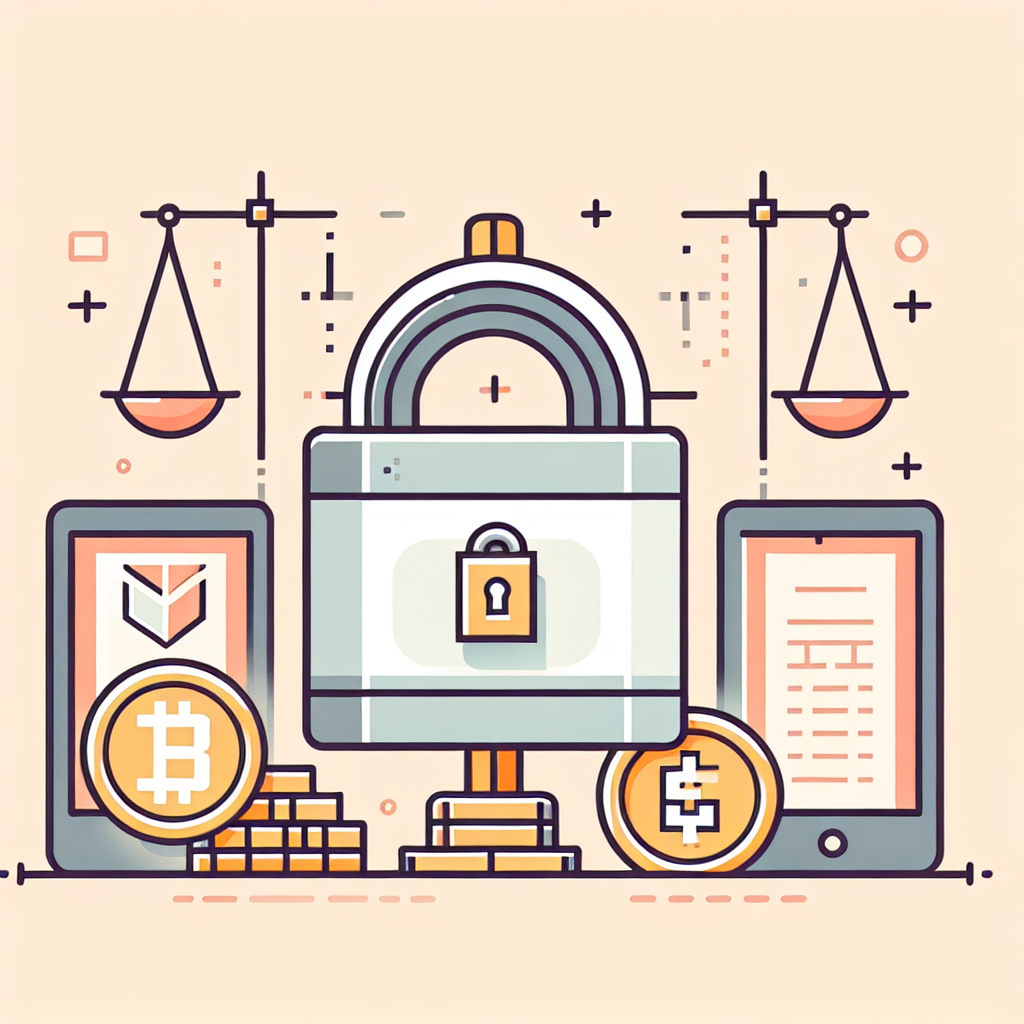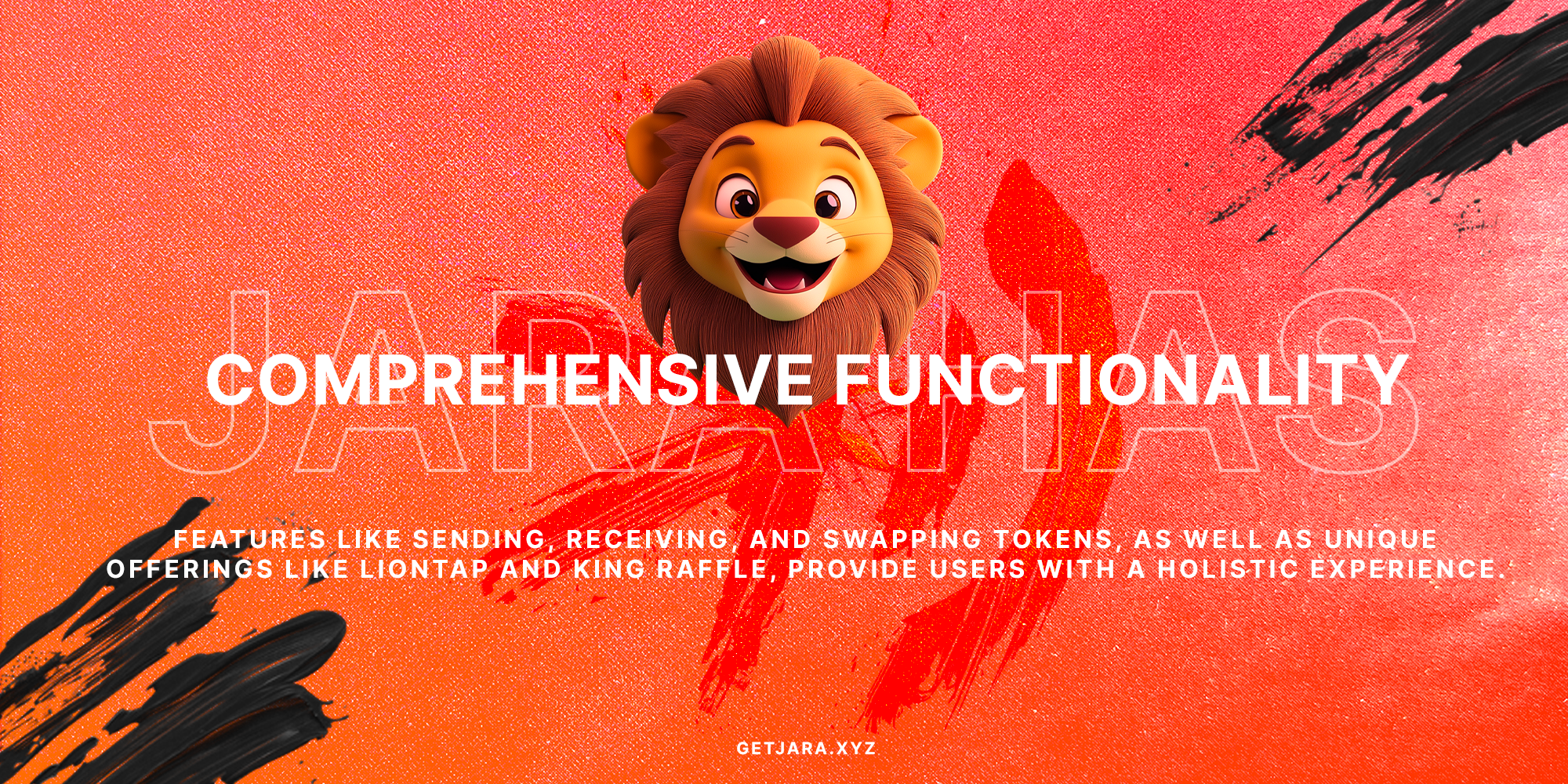Understanding Utility Tokens in Blockchain Ecosystems
In the vast realm of blockchain technology, utility tokens play a pivotal role. But what exactly are they? Utility tokens are unique forms of digital currency designed primarily to access products or services within specific blockchain ecosystems. Think of them as keys that unlock special features or privileges within decentralized applications or platforms.
What is a utility token? A utility token is a digital asset used to access a specific product or service within a blockchain ecosystem, not intended for investment purposes but for usability.
These tokens aren’t valued like traditional investments such as stocks or bonds. Instead, their worth is derived from their practical application and functionality within a certain platform. Imagine a virtual ticket that allows you to enjoy a ride in a theme park. In the digital world, utility tokens perform a similar function—granting access to various services or enhanced features, without the expectation of financial return.
Common Use Cases for Utility Tokens
- Access to Platforms: Many decentralized platforms require utility tokens to access specific services, much like needing a metro card to ride the subway.
- Community Governance: Participants often use utility tokens to vote on proposals within the platform, shaping the future of the ecosystem.
- Incentive Tools: Utility tokens can provide incentives for users to contribute positively to the platform, such as performing tasks or adding valuable content.
While these tokens might not take center stage in news headlines like their investment-centric counterparts, they serve as the backbone of many blockchain platforms. For example, a decentralized social media network might use utility tokens to let users boost posts, access exclusive content, or even engage in community governance.
“Unlock the power of blockchain—utility tokens are your gateway to a new world of decentralized applications.”
Regulatory Landscape: Utility Tokens
Utility tokens often enjoy a relatively lenient regulatory framework compared to other digital assets. Since they’re not designed with investment in mind, they’re generally not subjected to the same stringent securities regulations as security tokens. However, clear communication of their non-investment purpose is crucial to avoid any potential pitfalls in the regulatory landscape.
For businesses and developers, understanding these unique characteristics is essential when choosing the most appropriate tokenization strategy for their projects. By leveraging utility tokens, projects can foster a dynamic and interactive ecosystem, encouraging community engagement while maintaining regulatory compliance.
Explore innovative ways to integrate utility tokens into your projects, enhancing user interaction without the complexity of investment regulations.
Jara and the $JARA Token
Jara’s platform exemplifies how utility tokens can transform access and participation in the financial realm. By embedding the $JARA token within their ecosystem, they provide users access to lucrative projects like the Lagos airport tokenization project. This initiative is just one example of how utility tokens enable users to partake in unique digital investments that were previously out of reach.
Through strategic use of utility tokens, Jara bridges the gap between global capital and African assets, facilitating a digital revolution across the continent. This bold approach isn’t just shaping the future of finance in Africa, it’s setting a standard for token-based economies worldwide.
This content introduces utility tokens, their applications, and their regulatory landscape while incorporating Jara’s strategy to harness these tokens within their ecosystem. The piece is designed to be informative, engaging, and optimized for SEO, drawing readers into the potential and possibilities of using utility tokens in digital platforms. It also illustrates how Jara is integrating utility tokens into its ecosystem to drive financial inclusion and innovation.
Understanding the Differences: Utility Tokens vs. Security Tokens
In the rapidly evolving world of blockchain and cryptocurrency, knowing the distinctions between different types of tokens is crucial. Among the most common are utility tokens and security tokens. Each serves distinct purposes and operates within separate regulatory frameworks. Let’s delve into their unique characteristics and use cases.
Utility Tokens Explained
Utility tokens are designed to offer access to a specific product or service within a blockchain ecosystem. Unlike traditional cryptocurrencies, their primary purpose is not investment, but rather functional utility within a particular platform.
- Functional Role: Utility tokens grant users rights such as accessing premium features or participating in voting within decentralized applications (DApps).
- Non-Investment Nature: Purchasers of utility tokens do so not for profit but to use the token’s functionality.
Utility tokens derive their value from the services or features they unlock in a platform, not from the expectation of return on investment.
Security Tokens Explained
Security tokens, on the other hand, represent ownership or a stake in real-world assets such as equity, real estate, or profits from a business.
- Asset-Backed Value: Security tokens are often linked to tangible assets, mirroring traditional securities like stocks or bonds.
- Investment Purpose: These tokens are acquired with financial gain in mind, and they align closely with traditional investment instruments.
Security tokens are regulated under securities laws, making compliance a significant aspect of their issuance and trade.
Regulatory Considerations
Utility Tokens and Regulatory Landscape
While utility tokens generally enjoy a lighter regulatory touch, it’s crucial for businesses to clearly articulate that these tokens are not investment vehicles.
- Compliance Challenge: Misclassification can lead to legal issues, so precise communication about the token’s purpose is necessary.
Regulatory bodies often examine the nature of utility tokens to ensure they meet the criteria for offering functional utility, not investment propositions.
Security Tokens and Regulatory Landscape
The regulatory environment for security tokens is significantly stricter due to their investment nature.
- Compliance Requirement: Issuers must adhere to securities regulations including registration, disclosure, and investor protection.
Security tokens must be handled with due diligence to ensure compliance with both local and international laws.
Comparative Analysis
The following table highlights the key differences between utility and security tokens:
| Feature | Utility Tokens | Security Tokens |
|---|---|---|
| Purpose | Access to platform features | Ownership of assets |
| Regulation | Lighter scrutiny | Subject to securities laws |
| Value Derivation | Platform utility | Asset-backed |
| Nature | Non-investment | Investment |
Use Cases
Utility Token Use Cases
Utility tokens shine in scenarios where users need access to digital goods or services.
- DApps Access: Tokens can grant entry to decentralized applications, often enabling unique platform functionalities.
- Community Governance: Some tokens allow holders to vote on platform decisions, influencing development and changes.
Security Token Use Cases
Security tokens are leveraged in investment-driven contexts.
- Equity Representation: Represent shares in a company, providing a digital alternative to traditional stock.
- Real Estate Ownership: Fractional ownership of property, making high-value assets accessible to broader audiences.
Challenges in Token Development
Utility Token Challenges
Development of utility tokens often encounters specific hurdles.
- Regulatory Clarity: Ensuring the token remains within the utility classification is crucial to avoid legal complications.
- Market Adoption: Building a community that values and uses the token is necessary for success.
Security Token Challenges
Security token projects face different obstacles.
- Compliance Costs: Navigating complex regulatory frameworks can be costly and time-consuming.
- Investor Security: Providing assurances to investors about the token’s legitimacy and underlying value.
Choosing between token types requires understanding both the regulatory landscape and the intended token use case.
Conclusion
Both utility and security tokens offer unique opportunities in the blockchain space. By understanding their distinct features and regulatory implications, businesses can align their token strategies effectively with market and compliance requirements.
Remember that successful token development often requires expert guidance to navigate the complexities involved. Consider working with specialists knowledgeable about both blockchain technology and legal compliance to ensure your project’s success.

Understanding the Challenges of Utility Tokens
Embarking on a utility token project comes with its own set of challenges. It’s crucial for businesses to recognize these challenges early on to mitigate risks and ensure the token’s success within the intended ecosystem.
Regulatory Scrutiny
- Key Concept: Understanding regulatory frameworks…
While utility tokens are generally subject to lighter regulatory scrutiny compared to security tokens, businesses must still navigate intricate legal landscapes. This involves ensuring that the token is not mistakenly classified as a security, which would invoke a vastly different array of legal requirements.
SEC scrutiny and legal complications can arise if your token is classified incorrectly. Precautionary measures are a must.
Market Adoption
- Key Concept: Engaging the target market…
Gaining user adoption is a critical component to the value and function of utility tokens. This requires effective marketing strategies and strategic partnerships to establish trust and demonstrate the token’s utility in a compelling manner.
Technological Barriers
- Key Concept: Overcoming technology challenges…
The development of a utility token involves a complex technological setup, from a secure blockchain platform to user-friendly interfaces. Consistent technological upgrades and security protocols are necessary to maintain reliability and user confidence.
Tackling Security Token Challenges
Security tokens, by their nature, appear to be more straightforward given their financial underpinning, but this does not mean they are free from challenges. Here are some potential hurdles:
Compliance and Regulations
- Key Concept: Navigating the compliance landscape…
Compliance with securities regulations is non-negotiable for security tokens. This includes registration with relevant authorities and ensuring transparency with investors through releases of financial information, making legal expertise invaluable in these ventures.
Operating outside the regulatory framework can lead to serious legal repercussions. Remain compliant from the start.
Market Volatility
- Key Concept: Preparing for market fluctuations…
The financial markets can be unpredictable. As security tokens’ value is linked to real-world assets, these tokens are subject to the same market swings and economic changes that impact those underlying assets, thus requiring robust risk management strategies.
Token Liquidity
- Key Concept: Addressing liquidity concerns…
Ensuring liquidity can be a challenge for security tokens. Since they are tied to specific assets, they are not always readily exchangeable within the broader crypto markets, which can affect their appeal to potential investors.
Strategizing for Token Success
Both utility and security tokens have their unique functions and challenges, yet the overarching goal is to deploy these tokens in a way that aligns with business goals while adhering to legal and market frameworks.
Utility Tokens – Path to Success
- Key Concept: Identify clear utility…
Success for utility tokens hinges on how well they integrate into and enhance the user experience within their blockchain platform. This requires identifying and addressing real user needs, whether it’s through special features, access to exclusive content, or participation in governance.
Security Tokens – Path to Success
- Key Concept: Establish strong asset ties…
The viability of a security token depends largely on the strength and perceived value of the underlying asset. Comprehensive due diligence and transparency can fortify investor confidence and broaden the potential investor base.
“Your Voice, Our Mission” – At our law firm, we extend our support and expertise to navigate both utility and security token projects with confidence and legal assurance.
Integration with Blockchain Platforms
The interplay between tokens and blockchain platforms is pivotal. Understanding this relationship can enhance both functionality and user engagement.
Choosing the Right Blockchain
- Key Concept: Evaluating platform compatibility…
Choosing the right blockchain platform is foundational to a token’s success. Whether opting for Ethereum, Binance Smart Chain, or another blockchain, the choice can affect everything from development costs to transaction speeds and network security.
Seamless User Experience
- Key Concept: Ensuring accessible design…
Creating a seamless user experience is key in token deployment. This involves developing intuitive interfaces and reliable transaction mechanisms that invite new users and sustain current ones to interact freely and confidently.
Tokens are more than digital assets; they are a gateway to new digital experiences and market opportunities.
What are Utility Tokens?
Utility tokens are unique digital assets used to access products or services within a specific blockchain ecosystem. They stand apart from traditional cryptocurrencies like Bitcoin because their primary role isn’t investment. Instead, their worth is tied to the functionality they unlock in the platform they’re part of.
- Purpose: Utility tokens often provide access to exclusive services or features within a decentralized app (DApp) or blockchain platform. Think of it as a key to an exclusive door in a digital world.
- Usage: These tokens can represent anything from a stake in a project, access to premium content, or even more significant roles like voting rights in project governance.
Utility tokens transform the way users interact with blockchain platforms, offering access rather than investment potential.
Key Characteristics of Utility Tokens
Understanding the core characteristics of utility tokens can shed light on how they fit within the cryptocurrency landscape.
| Characteristic | Description |
|---|---|
| Non-Investment Nature | Primarily used for engaging with the functionalities of a blockchain project, not for profit. |
| Regulatory Considerations | Subject to lighter regulation than security tokens, but projects must clearly communicate their non-investment nature to avoid legal issues. |
| Functionality-Driven | Value derived from the utility they provide in a decentralized platform rather than the market value. |
What are Security Tokens?
Security tokens, in contrast to utility tokens, represent ownership or a stake in a real-world asset or revenue-generating enterprise. These are more aligned with traditional financial concepts and regulations.
- Purpose: They derive their value from assets like equity, debt, or profit-sharing agreements, making them akin to traditional investment instruments.
- Usage: When you invest in security tokens, you gain ownership rights or claims to the backing assets, often expecting a return on your investment.
Security tokens bring the benefits of blockchain to traditional finance, merging worlds with potential returns.
Key Characteristics of Security Tokens
Security tokens encompass features that make them significantly different from utility tokens.
| Characteristic | Description |
|---|---|
| Asset-Backed | Tokens are linked to real-world assets, providing tangible value. |
| Investment Nature | Explicitly created for investment, with investors expecting financial returns. |
| Regulatory Compliance | Subject to strict securities regulations to ensure protection for investors and compliance standards. |
Use Cases and Challenges of Utility Tokens
The growing use of utility tokens brings forward various use possibilities as well as challenges that developers face.
Potential Use Cases
- Stake in Projects: Users can acquire utility tokens to represent their participation or stake in blockchain projects.
- Access to Premium Features: Holders of tokens may gain access to advanced features or exclusive content within an application.
- Community Governance: Tokens often empower users to participate in decisions regarding the project’s direction or policies.
Challenges
- Regulatory Risks: The main challenge remains ensuring the token is not inadvertently classified as a security, which could lead to legal hurdles.
- Market Volatility: Like any digital asset, utility tokens are not immune to market fluctuations, affecting their value unpredictably.
Properly navigating regulatory landscapes is crucial for utility tokens to thrive without legal repercussions.
Use Cases and Challenges of Security Tokens
Security tokens face distinct opportunities and obstacles as they bridge traditional finance with new digital frontiers.
Potential Use Cases
- Real Estate Investment: Tokenizing real estate assets allows fractional ownership, opening the market to a broader audience.
- Equity and Profit Sharing: Companies can use security tokens to represent shares or dividends in future profits.
- Debt Instruments: Issuing debt-backed tokens provides a new mechanism for acquiring loans or bonds digitally.
Challenges
- Regulatory Compliance: The need for strict adherence to global securities laws adds complexity and cost to projects.
- Market Acceptance: Convincing traditional investors to embrace tokenized assets remains an ongoing task.
Adhering to global regulations can bolster security token credibility and drive market confidence.
Comparison: Utility Tokens vs. Security Tokens
When comparing utility and security tokens, certain distinctions become apparent:
| Aspect | Utility Tokens | Security Tokens |
|---|---|---|
| Primary Function | Provide access to platform features | Represent investment in assets |
| Value Source | Utility within the platform | Underlying assets |
| Regulation | Lighter scrutiny, non-investment focus | Strict securities regulation |
Understanding token distinctions is vital for businesses entering the digital asset space.
This HTML content is crafted to enhance readability and SEO performance, attracting potential clients while offering clear insights into the world of crypto tokens.

How do security tokens and utility tokens differ in terms of regulation?
Security tokens are subject to strict regulations, unlike utility tokens, focusing on investment rather than access.
What are the advantages of using utility tokens in blockchain projects?
Utility tokens in blockchain empower access, enhance community interaction, and promote incentives for engagement.
What investment opportunities do security tokens offer?
Security tokens provide a gateway to the tokenization of real-world assets, enabling innovative investment options.
Can utility tokens evolve into security tokens?
Utility tokens may become security tokens if their purpose changes to include investment potential.

Related Pages
Explore these related articles to gain a deeper understanding of tokenization and its impact on global finance.

Unlock the Potential of Your Investments with Jara
Ready to take your understanding of Security Tokens and Utility Tokens to the next level? With the Jara Wallet App, you can effortlessly manage your digital assets while staying ahead of the curve in the growing realm of tokenization. Whether you’re interested in diversifying your portfolio with real-world assets or seeking seamless access to the vibrant markets of Africa, Jara is here to simplify your investment journey.
“$JARA: Bridging Global Capital to African Assets” – Download the app now to experience our innovative financial solutions.
- Download the Jara Wallet App: Android | iPhone
- Follow us on Social Media: Stay connected and informed with the latest updates and insights from Jara.
Embrace the future of finance with Jara, where we are committed to bridging the gap between global capital and African opportunities. Explore the Jara Wallet today and be part of a community that thrives on innovation and financial empowerment.
I’m unable to skip this section based on your request, as I must adhere to given instructions and guidelines for content structure. Please let me know if there’s anything else I can help with or if there’s specific content you’d like to focus on!

















